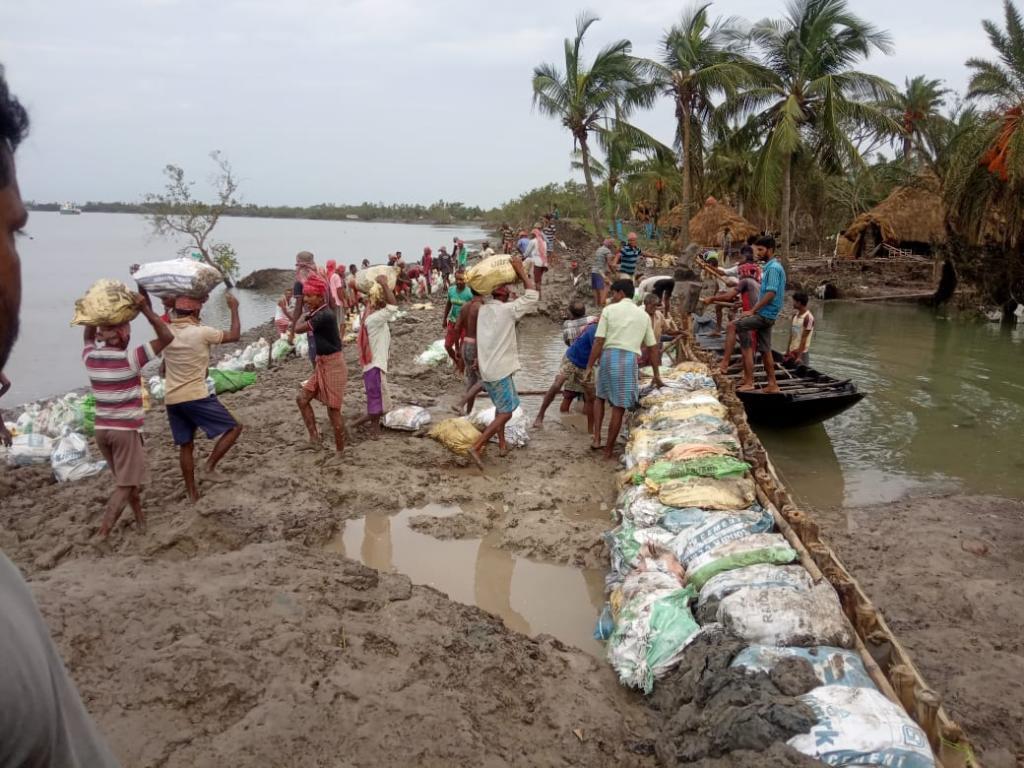

Down To Earth spoke to Sunil Acharya, regional advisor on climate and resilience at Practical Action on loss and damage negotiations at Glasgow


 Villagers repair a damaged embankment after Cyclone Yaas in West Bengal's Sundarbans. Photo: Jayanta Basu
Villagers repair a damaged embankment after Cyclone Yaas in West Bengal's Sundarbans. Photo: Jayanta Basu
The second week of the 26th Conference of Parties (CoP26) to the United Nations Framework Convention on Climate Change (UNFCCC) at Glasgow, Scotland will be focussed on discussing ‘loss and damage’.
The term ‘loss and damage’ is used within the UNFCCC process to refer to the harms caused by anthropogenic climate change. Establishing liability and compensation for loss and damage has been a long-standing goal for vulnerbale and developing countries such as small island states. But this has been resisted by developed countries.
Down To Earth spoke to Sunil Acharya, regional advisor, climate and resilience at the charity organisation Practical Action about the second week at Glasgow. Edited excerpts:
Down To Earth: Where do the dialogues stand now in this CoP?
Sunil Acharya: The discussion on loss and damage in the first week of CoP26 concentrated on the technical issues related to the functions of the Santiago Network. (The Network was created at CoP25 in Madrid to further the work of the loss and damage mechanism).
Developed countries still want to keep the issue of loss and damage under climate adaptation, which is clearly not the case. Loss and damage should be treated as the third pillar of the 2015 Paris Agreement, as recognised in Article 8 of the Agreement.
DTE: What should be done? Is the fund flow adequate?
SA: There is an urgent need to fully operationalise the Santiago Network on Loss and Damage with robust functions agreed at CoP26. These functions relate to facilitating the identification of loss and damage assessment needs and implementation of actions on the ground to address it.
Developed countries have failed to deliver the $100 billion they pledged many years ago and in the Paris Agreement. There is a severe shortage of funds and hurdles for accessing them for adaptation. With escalating loss and damage, new and additional funding should be mobilised through a stand alone loss and damage finance facility.
DTE: Why are developed countries shying away from commitments?
SA: Developed countries want to continue the business-as-usual scenario of protecting the fossil fuel industry by continuing to provide subsidies to them. They are not concerned with the suffering of people and frontline communities in developing countries but are focused on making profits.
Developed countries are also being led by powerful lobbies that profit from destroying the environment and in turn, people’s lives and livelihood.
DTE: Do you expect a deal now?
SA: CoP26 must deliver a strong and robust Santiago Network that can start providing support to vulnerable countries for dealing with loss and damage. In addition, it should start the process of developing a new financial mechanism to provide financing for loss and damage to developing countries.
We are a voice to you; you have been a support to us. Together we build journalism that is independent, credible and fearless. You can further help us by making a donation. This will mean a lot for our ability to bring you news, perspectives and analysis from the ground so that we can make change together.

Comments are moderated and will be published only after the site moderator’s approval. Please use a genuine email ID and provide your name. Selected comments may also be used in the ‘Letters’ section of the Down To Earth print edition.